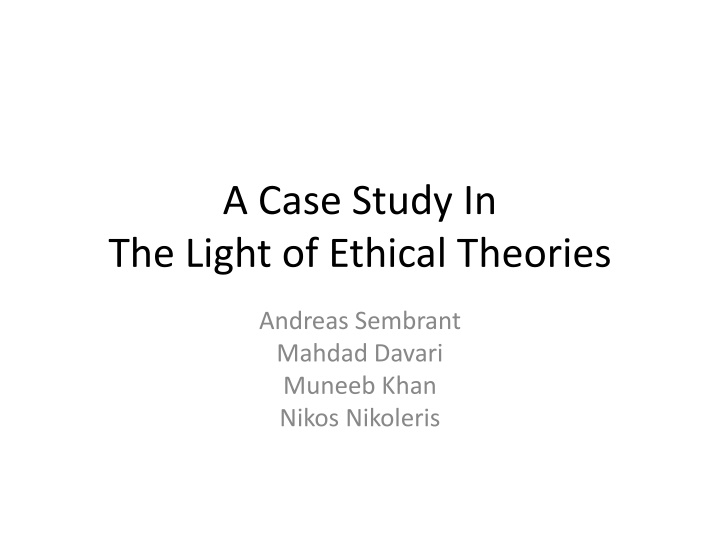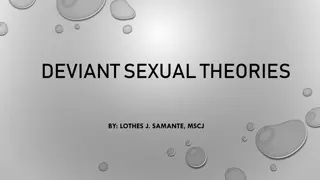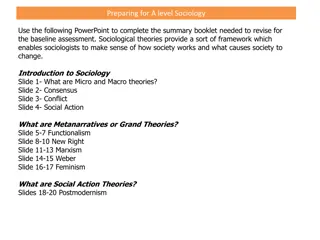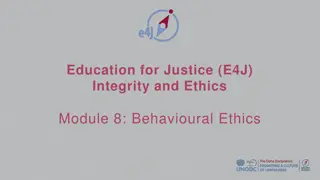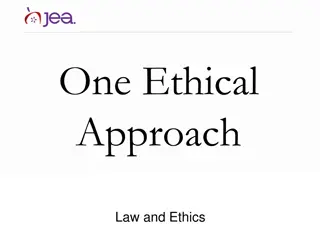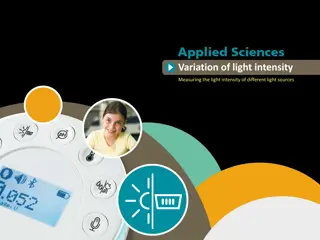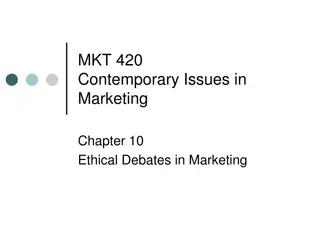A Case Study in The Light of Ethical Theories
This case study explores the ethical considerations surrounding the controversial topic of euthanasia through the lenses of Ethical Egoism, Utilitarianism, Kantism, and Social Contract Theory. The scenario of Tracy Latimer's euthanasia is analyzed based on different ethical perspectives and their implications on moral correctness.
Download Presentation

Please find below an Image/Link to download the presentation.
The content on the website is provided AS IS for your information and personal use only. It may not be sold, licensed, or shared on other websites without obtaining consent from the author.If you encounter any issues during the download, it is possible that the publisher has removed the file from their server.
You are allowed to download the files provided on this website for personal or commercial use, subject to the condition that they are used lawfully. All files are the property of their respective owners.
The content on the website is provided AS IS for your information and personal use only. It may not be sold, licensed, or shared on other websites without obtaining consent from the author.
E N D
Presentation Transcript
A Case Study In The Light of Ethical Theories Andreas Sembrant Mahdad Davari Muneeb Khan Nikos Nikoleris
Case Study - Euthanasia Tracy Latimer, a 12 year old girl suffering from cerebral palsy (1993) She is handicapped and in constant pain No prospect for any improvement Her father ended her life as an act of mercy Eventually, he was found guilty and prisoned for 25 years
Is His Act Morally Correct? Ethical Egoism (Andreas) Utilitarianism (Mahdad) Kantism (Muneeb) Social Contract Theory (Nikos)
Ethical Egoism Right action is the action that is most advantageous to oneself in the long run Frees up resources (Care of a handicapped child takes time, resources and expenses) Reduces grief in the family It will be better off for the family (long run) He will miss her and might feel guilty if ending her life Potential imprisonment (became reality) End her life Keep alive
Utilitarianism Right action is the action that maximizes the overall happiness for all Free up resources for other people (+) Lesser misery for the family (+) Minimize her suffering (+) She dies (-) Short term grief (-) Potential Imprisonment (-) Keep resources occupied (-) Continued suffering for relatives (-) Constant suffering for her (-) She lives (+) End her life Keep alive
Kantism Right action is the action that people can willingly follow in all situations Dilemma caused by the intention Is she being killed to free up resources and make family happier? Yes: Humanity is being used as the mean to achieve an end (morally incorrect) Is she being killed to end her suffering? Yes: Humanity is the end and death is the means (morally correct)
Social Contract Theory The right action is the action that follows rules that a rational people have agreed to Euthanasia may be accepted or not by the Social Contract Euthanasia is not accepted in Canada Killing the girl breaks the Social Contract, and The father has to face natural consequences as per the Social Contract
Verdict Ethical Egoism Kill her! Utilitarianism don t know! Kantism Kill her! Social Contract Theory don t kill her!
